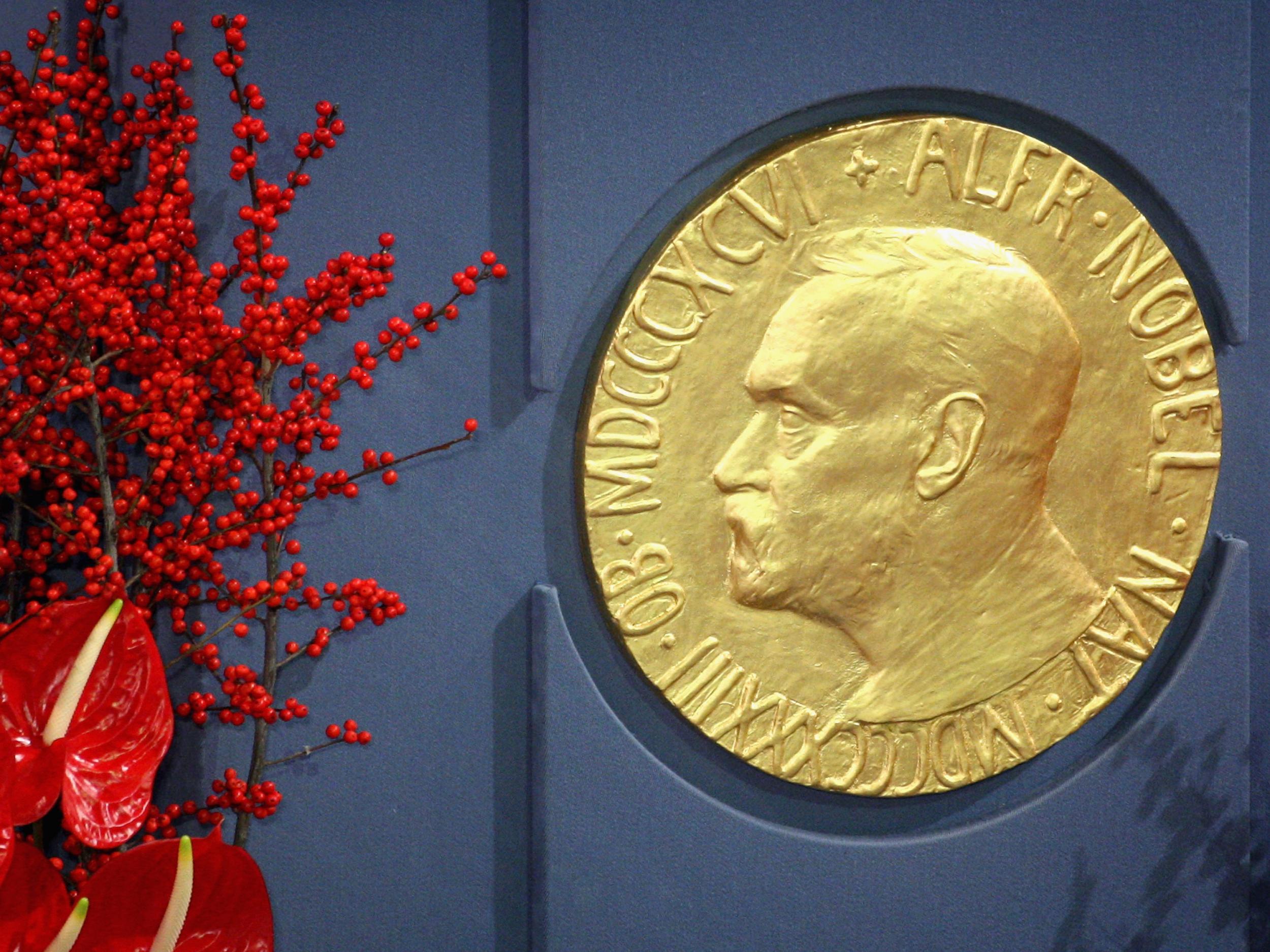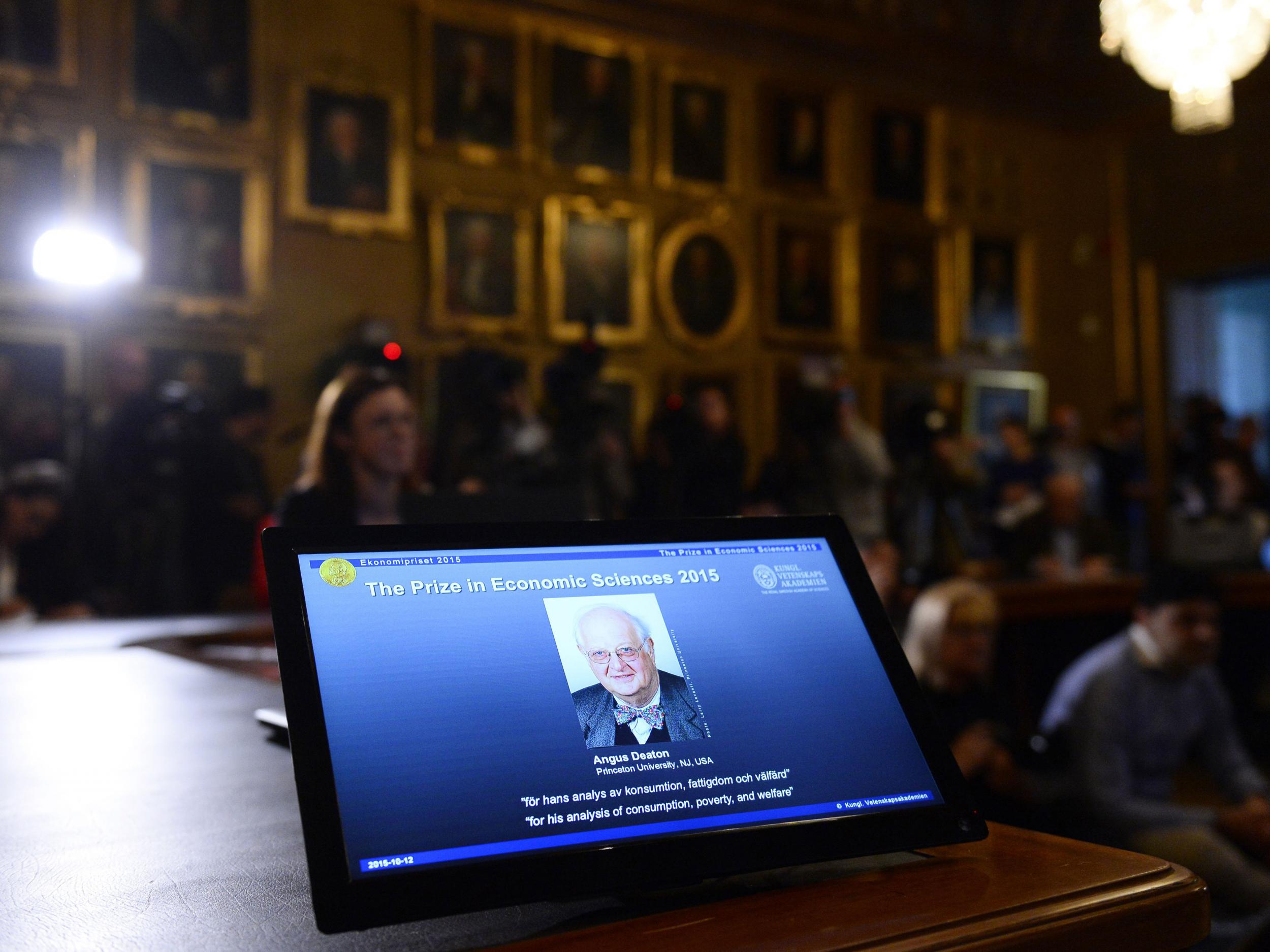Nobel Prize in Economics 2015 given to Angus Deaton ‘for his analysis of consumption poverty and welfare’
The Sveriges Riksbank Prize in Economic Sciences in Memory of Alfred Nobel is given to the British-American economist, in the last Nobel announcement of the year

Your support helps us to tell the story
From reproductive rights to climate change to Big Tech, The Independent is on the ground when the story is developing. Whether it's investigating the financials of Elon Musk's pro-Trump PAC or producing our latest documentary, 'The A Word', which shines a light on the American women fighting for reproductive rights, we know how important it is to parse out the facts from the messaging.
At such a critical moment in US history, we need reporters on the ground. Your donation allows us to keep sending journalists to speak to both sides of the story.
The Independent is trusted by Americans across the entire political spectrum. And unlike many other quality news outlets, we choose not to lock Americans out of our reporting and analysis with paywalls. We believe quality journalism should be available to everyone, paid for by those who can afford it.
Your support makes all the difference.Angus Deaton is the winner of 2015's Nobel Prize for Economics, with the committee praising his "analysis of consumption, poverty, and welfare".
“To design economic policy that promotes welfare and reduces poverty, we must first understand individual consumption choices,” the academy wrote. “More than anyone else, Angus Deaton has enhanced this understanding. By linking detailed individual choices and aggregate outcomes, his research has helped transform the fields of microeconomics, macroeconomics, and development economics.”
During a call at the press conference, Deaton declined to comment on whether his work on gender inequality and other issues could lead to fixing those problems. But historically the recognition that the prize brings has brought economists' ideas to the fore, and allowed them to become more involved in policy making.
Deaton describes his research as focusing on “the determinants of health in rich and poor countries, as well as on the measurement of poverty in India and around the world”, on his page on the Princeton University website. He is the Dwight D. Eisenhower Professor of Economics and International Affairs at the university’s public and international affairs and economist departments.
Deaton is one of the few 2015 Nobel laureates who won’t have to share his prize with anyone. All of the award winners will actually receive their award on December 10, at events in Stockholm and Oslo.

He is also the last winner to be announced — though his prize isn't strictly a Nobel but rather the "Sveriges Riksbank Prize in Economic Sciences in Memory of Alfred Nobel".
The rest of the Nobel Prizes were created by Swedish industrialist Alfred Nobel in 1895. The prize in economics was added by Sweden's central bank in 1968 as a memorial.
Join our commenting forum
Join thought-provoking conversations, follow other Independent readers and see their replies
Comments